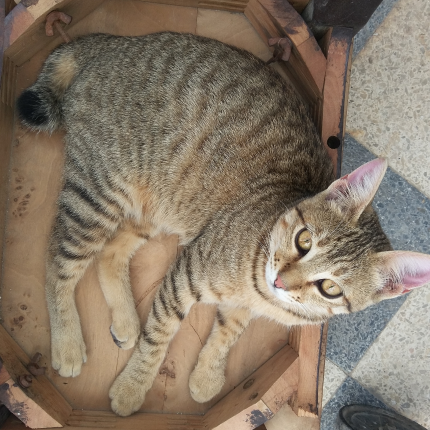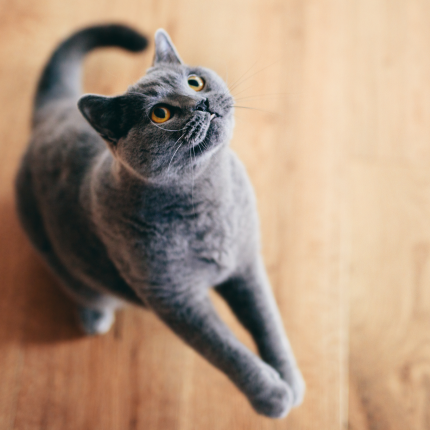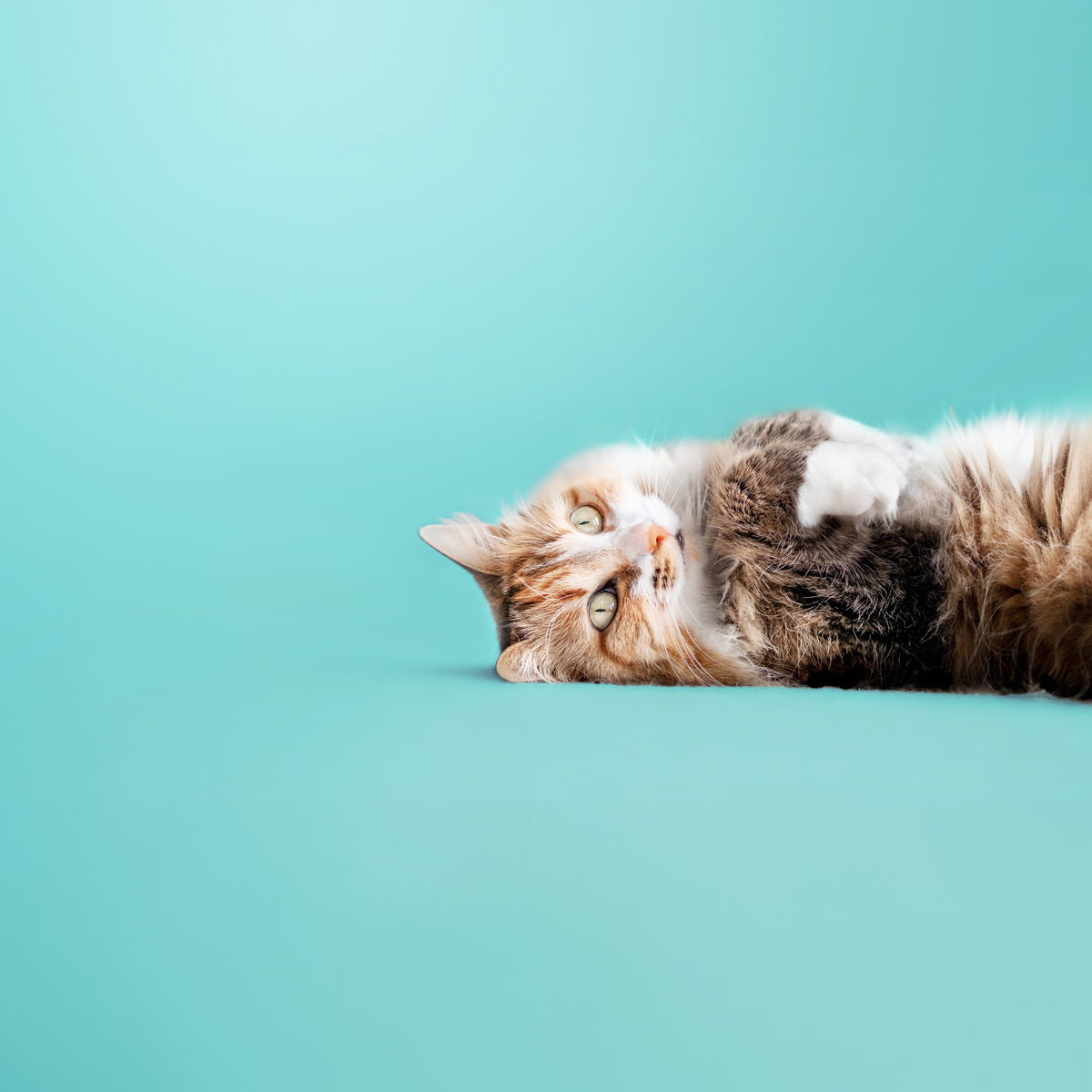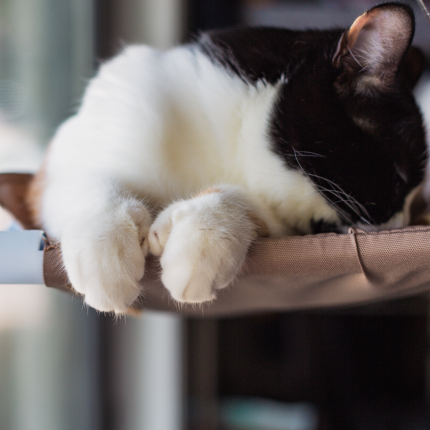What is a Pixie-Bob?

The Pixie-Bob cat, an adorable mini-bobcat, is catching fire as the next popular breed. With its cute stubby tail and ‘dog-like’ nature, it’s no wonder! Pixie-Bobs, notable for their size and sturdiness, carry an uncanny resemblance to their wild cousins, the bobcats. Although not substantiated by DNA testing, they are believed to emerge from natural breeding between the American bobcat and domestic or barn cats.
Legally classified as domestic cats, Pixie-Bobs offer an exotic appearance without the ownership restrictions linked to wild creatures. With beauty, playfulness, loyalty, and adaptability, they effortlessly fit into diverse households, making them ideal companions for families, including children and other pets.
Distinctive Characteristics of the Pixie-Bob
Belying the stereotypical aversion to water, many Pixie-Bobs exhibit a surprising affinity for it, potentially tracing back to their purported wild lineage. Renowned for their amiable disposition, these felines thrive on familial interactions. Their vocalizations typically comprise chirps and twitters, with occasional meows interspersed. Pixie-Bobs easily coexist with children and fellow pets. However, mindful supervision is essential to ensure respectful treatment, as any cat can turn defensive when provoked, and small pets like rodents, birds, or fish are always at risk due to their innate hunting instincts that might unexpectedly resurface.
Origins of the Pixie-Bob
The Pixie-Bob’s originated with Carol Ann Brewer in 1985 when she adopted a large, bob-tailed rescue cat, rumored to be the offspring of a barn cat and a bobcat. After mating with a neighbor’s tabby, they gave birth to a litter of kittens. Brewer selected one female offspring with a distinct “wild” appearance and named her Pixie.
Over years of meticulous curation, Brewer collected bob-tailed, spotted cats, preferably those rumored to result from bobcat-domestic unions. Amassing 23 such felines, she established the foundation for the Pixie-Bob breed, a tribute to her first female, Pixie. Brewer coined “legend cats” to describe these hybrids, though DNA analysis has yet to authenticate their bobcat lineage.
In 1993, the International Cat Association granted Pixie-Bobs the status of a native new breed, acknowledging their genetic kinship within a natural population specific to a geographic region. Despite their bobcat-like resemblance, Brewer’s founding committee vehemently opposes the involvement of captive American bobcats in the breed’s breeding programs.
View this post on Instagram
Pixie-Bob Care
Grooming
Pixie-Bobs manifest in both longhair and shorthair varieties. Shorthairs exhibit a dense double coat, while longhairs flaunt up to 2 inches of silky fur. Regular brushing, at least twice a week, is imperative to manage shedding and prevent hairballs. Employ specialized brushes catering to your cat’s fur length. Maintaining trimmed nails and offering a scratching post promote healthy scratching habits. Regular teeth brushing supports oral hygiene.
Exercise
Earning the moniker of “dog-like,” Pixie-Bobs can be harnessed and taken for walks. Engaging in interactive toys and play sessions satiate their exercise needs and cognitive stimulation. Multi-level cat trees amplify their play area, facilitating climbing and exploration.
Health Considerations
Pixie-Bobs, benefiting from a diverse gene pool, evade inbreeding-related health concerns. They are susceptible to standard health conditions affecting domestic cats. Adhering to recommended healthcare protocols, including vaccinations, regular checkups, and preventative treatments, safeguards their well-being. Reputable breeders provide health documentation for their cats.
Diet and Nutrition
Pixie-Bobs require no specialized dietary regimen. Whether wet, dry, or a combination, dietary choices should align with individual preferences and needs. Wet food can provide cats with lower water intake and essential fluids, while crunchy dry food benefits dental health. Mindful portion control prevents obesity, ensuring a robust and agile stature throughout their lives.

Featured Articles

Greebles and Cats: The Origin and the Meaning
You may have seen an internet sensation concerning cats labeled “greebles.” Feel out of the loop? We’re here to help you. In 2019, Reddit user /user/literallyatree commented on a Reddit post about a cat that looks like it’s trying to slap a ghost. This user commented: “My family calls things…

Why Do Cats Roll Over Into Their Backs But Not Let You Touch Their Bellies?
It’s common knowledge dogs love to have their tummies rubbed when they freely lay down before you and roll onto their backs. But, if you’re also familiar with cats, you know that when they roll onto their backs with their bellies exposed, rubbing the belly will most likely result in…

Polydactyl Cats: Just More Beans to Love
Polydactyl cats have become extremely popular in recent times. As a result, more and more people are interested in learning more about this six-toed cat and want to get one of their own. If you are a cat lover intrigued by polydactyl cats, you have come to the right place….
